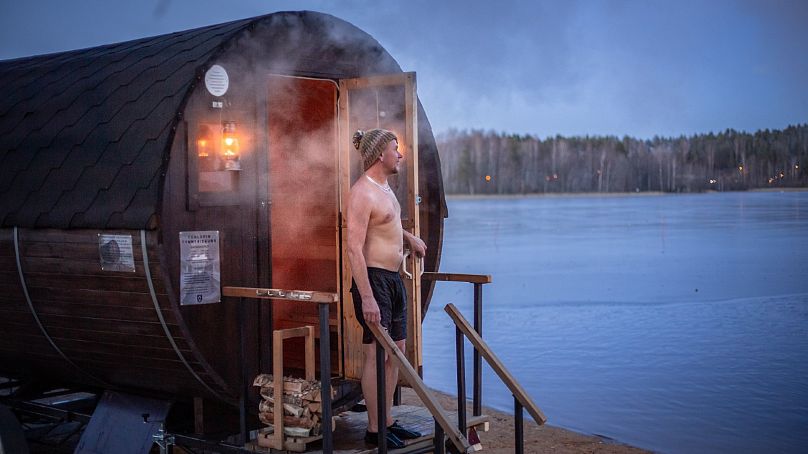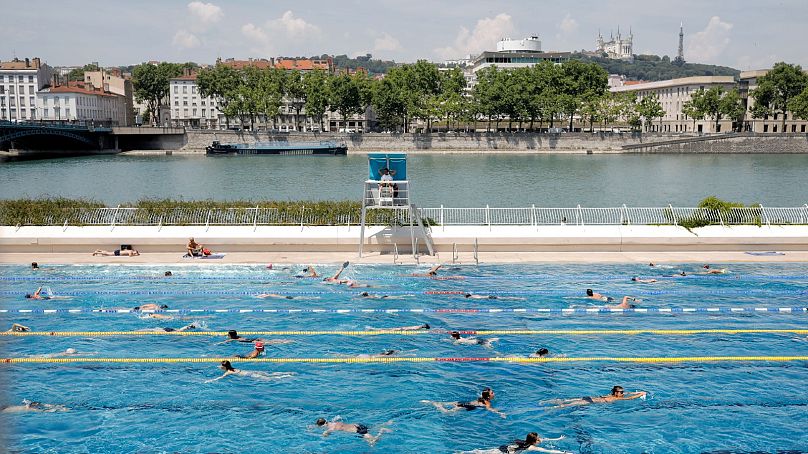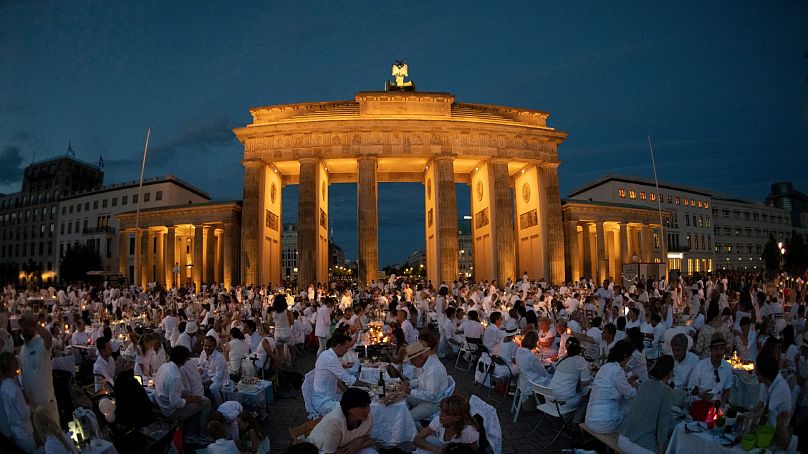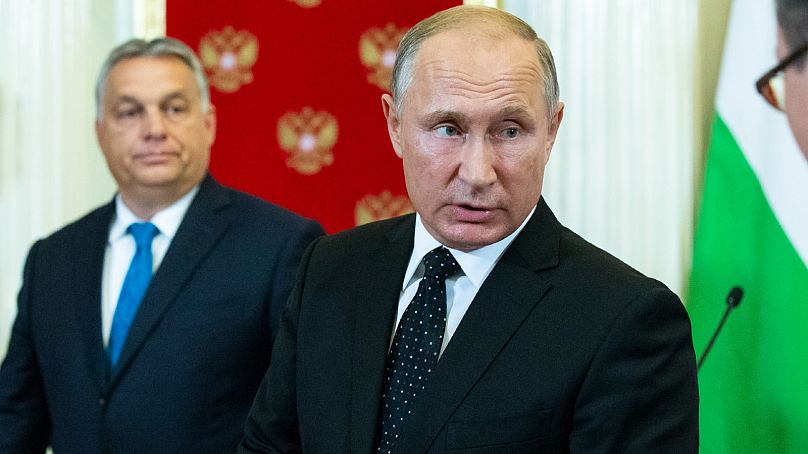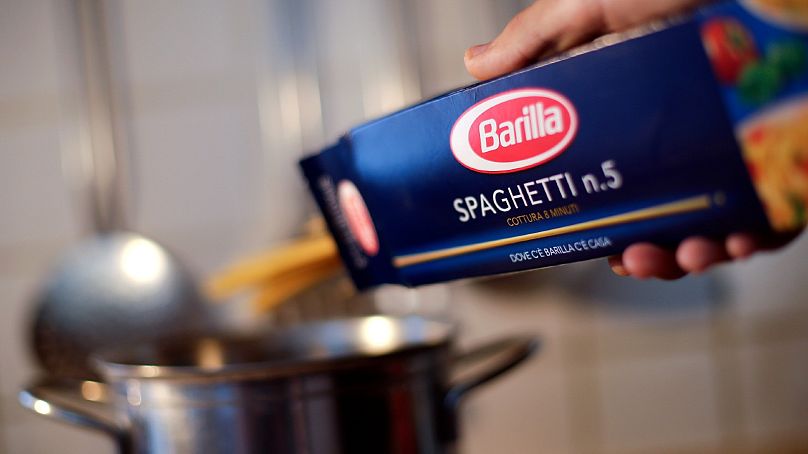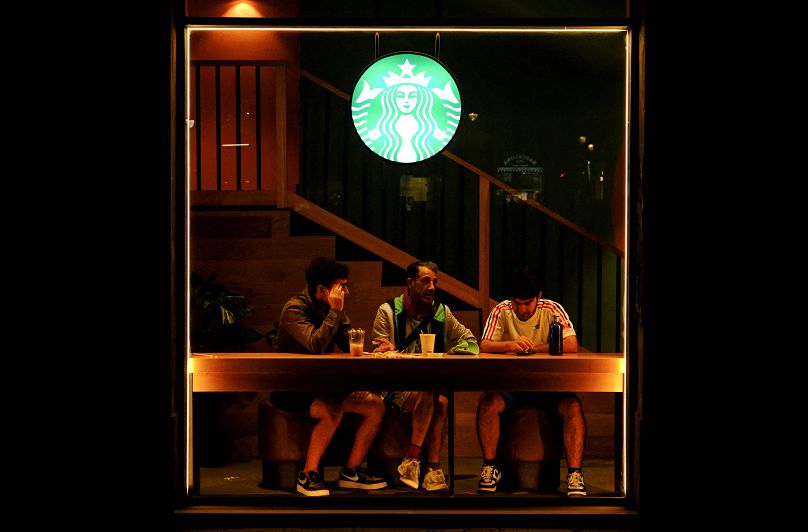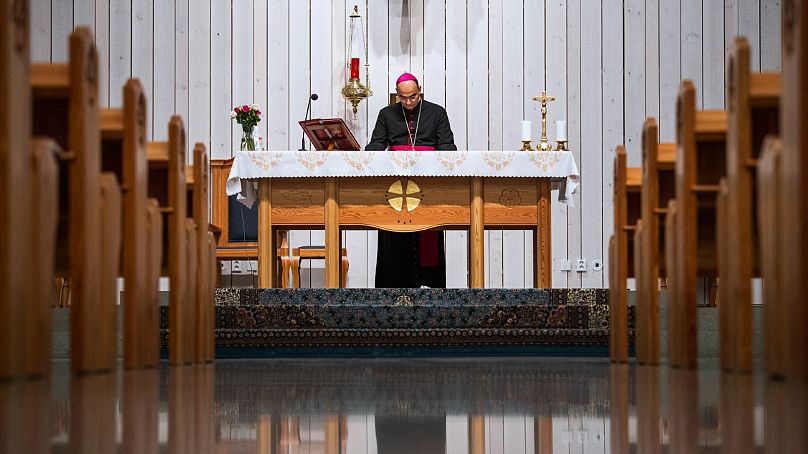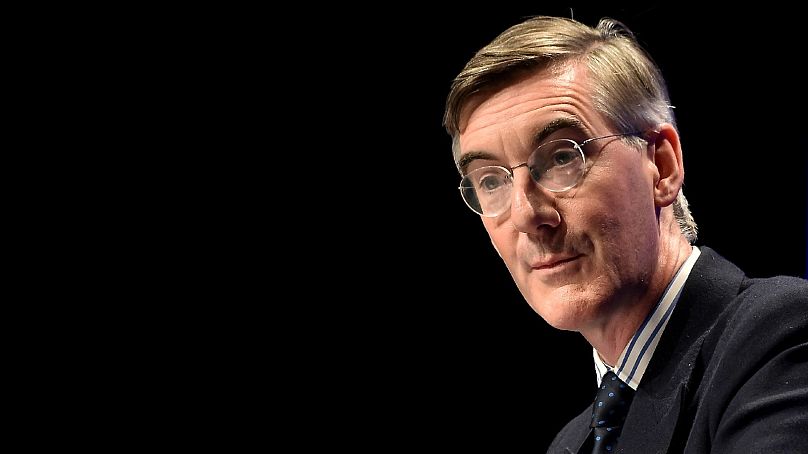This is how some countries around Europe are trying to reduce their gas and electricity bills ahead of what is set to be a tough winter.
Here are the concrete measures countries across Europe are taking to reduce energy consumption amid fears of a difficult winter ahead.
 ADVERTISEMENT
ADVERTISEMENT
 ADVERTISEMENT
ADVERTISEMENT
Whether it's to reduce reliance on Russian energy imports amid the fallout from the war in Ukraine or conserve supplies in case Moscow turns the taps off, capitals across the continent have been unveiling initiatives.
Denmark: Displays of Christmas lights reduced
With the festive season fast approaching, some in Denmark have decided to drop one part of their Christmas celebrations.
Local authorities in the Danish capital Copenhagen plan to cut their Christmas lights, only switching them on between 15:00 and 21:00 and delaying their use by two weeks.
They hope to reduce the decorations’ energy consumption by 60% compared to last year, as part of a government effort to make fuel and electricity savings in the public sector.
Others are taking it upon themselves to cut back.
Faced with soaring energy costs, the five-star Hotel d’Angleterre in the heart of Copenhagen has decided to cancel its elaborate light display – traditionally a highlight of the city’s Christmas season.
Finland: Spend less time in saunas, Finns told
As ever, Finns are preparing for a long and dark Nordic winter. But this year's could be a touch colder.
That's because the government in Helsinki has launched a campaign aimed at encouraging at least 95% of Finnish households to save energy and lower electricity use during peak times.
How are Finns being asked to do this? They are being encouraged to turn down their thermostats this winter, take shorter showers and spend less time in their beloved saunas, something entwined with Finish culture, as part of the non-binding plans.
"Maybe people don't need to turn on the sauna every day, maybe just once a week", Kati Laakso, a spokeswoman for the state-owned company Motiva, which promotes energy sustainability, told reporters in October. “We hope that people will voluntarily follow the recommendations and understand the situation, that we are heading into a difficult winter."
Private companies are following suit. Elixia gyms in Finland, which has dozens of gyms across the country, has started to restrict the amount of time the saunas are heated up, in a bid to save electricity.
As part of its push, Helsinki has slashed electricity taxes and is subsidising bills. It hopes its campaign will achieve a permanent reduction in energy consumption.
France: Brrrrr-east stroke as Paris cuts swimming pool temperatures
France has unveiled 15 flagship measures to cut energy consumption. They include:
- Homes and offices heated to a maximum of 19°C
- No hot water in public buildings
- No lighting on advertising overnight
- A ban on doors left open in heated or air-conditioned shops
- Reduced temperatures in swimming pools and gyms
Announcing the plans, Agnès Pannier-Runacher -- France's energy transition minister -- called for a "general mobilisation" of the whole country to achieve a "10% reduction in energy consumption" in two years' time, compared to 2019.
She described it as a "first step" towards achieving a 40% cut by 2050 recommended by climate experts for the country to become carbon neutral.
But others were concerned the measures do not go far enough and failed to encourage savings.
"Asking people to reduce heating does not fundamentally decrease our dependence on fossil fuels," Ines Bouacida, a climate researcher at the IDDRI think-tank, told Euronews. "The crisis will not disappear within the next few months. We need extra efforts on what truly decreases our fossil energy consumption."
Germany: Lights off and cold showers
Germany -- heavily reliant on Russian gas and oil -- has been hit particularly hard by Europe's energy crisis.
Feeling the crunch, cities across the country have dimmed the lights.
From 1 September, all of Berlin’s public monuments, city halls, state administration buildings, libraries, and museums can only be lit between 16:00 and 22:00, plunging key landmarks like Humboldt University, the German Historical Museum and the Brandenburg Gate into complete darkness.
The same goes for the private sector, with brightly lit billboards also forced to switch off.
This lights-out policy is part of a nationwide effort, enshrined in the new energy conservation act.
In Hanover, only cold showers will be available in public facilities like swimming pools, sports halls and gyms, while state employees across Germany must wash their hands with cold water.
Public fountains are being turned off, while the city’s pools will no longer be heated with gas.
Hungary: Budapest goes against EU to secure Russian energy supplies
Hungary is an outlier in the European Union.
While the rest of the bloc tries to reduce reliance on Russian energy imports, Budapest has moved to import more gas, striking a new deal with Moscow this summer.
In July, Prime Minister Viktor Orban vowed Hungary would "be safe" and "have enough" energy, before signing off an agreement which will see nearly one billion extra cubic metres of gas imported from Russia.
Hungary consumes some ten billion cubic metres of gas per year, according to Reuters.
But some energy belt-tightening is still going on.
In September, the Hungarian government announced public buildings -- notably schools -- must be heated to 18°C in the winter, 1°C lower than the advised maximum temperature in most other EU countries.
Hungarians have also been incentivised to lower their gas and electricity consumption, following the end of an energy price cap in August.
The measure meant Hungary enjoyed some of the cheapest energy in Europe but was widely criticised for not encouraging people to save.
Italy: Controversy stirred as Italian suggests saving energy cooking pasta
Some energy-saving techniques are perhaps more stereotypical than others.
In September, Italian Nobel Prize laureate Giorgio Parisi suggested Italians cook pasta by turning off the heat after the water boils to limit energy bills.
In a video shared on social media, the 74-year-old physicist claimed “at least eight minutes of energy consumption” is saved by using this method.
"The most important thing is to keep the lid on, a lot of heat is lost through evaporation," he said. "After boiling the pasta, I put the gas on minimum, so that it boils very little without consuming."
Changing cooking methods might seem trivial, but it could have a big impact.
An average Italian consumes around 23.5 kg of pasta yearly, which demands large amounts of electricity or gas for heating water and keeping it at boiling point.
Despite many Italians refusing to follow this practice, and having turned to social media to share their dissent, already in May, the association of pasta producers Unione Pastai recommended the so-called "Parisi method".
Others are less convinced.
“It would be a disaster,” said Italian chef Luigi Pomata. “Let’s leave the cooking to chefs while physicists do experiments in their lab.”
Lithuania: ‘Put lights out... and Putin'
Former Soviet state Lithuania, a staunch ally of Kyiv, has styled part of its energy-saving drive as a way of defeating Russian President Vladimir Putin and aiding Ukraine.
Turto Bankas, which manages the country’s state-owned properties, launched an initiative titled ‘putinOut’, which is encouraging around 500 properties, mostly state housing, to cut their energy use by at least 10%.
“Not only are we putting lights out, we are putting Putin out,” Turto Bankas CEO Mindaugas Sinkevičius told Euronews, adding that the scheme intentionally put Putin's name in lowercase letters.
“We all do understand who is responsible for the energy crisis in Europe. We are in the middle of Russia’s energy war against Europe."
“While consuming less energy, we Europeans can directly hurt Putin's regime and affect energy prices,” he added.
Russia -- a key supplier of gas to the EU -- has been accused of weaponising supplies, particularly after it cut off the Nord Stream 1 gas pipeline, though Moscow has blamed maintenance for the shutdown.
The campaign, which started in September, also wants to create behavioural changes in everyday office life.
Public servants are asked to boil less water, use the stairs instead of elevators and avoid using electrical heaters - among other things.
The plan is expected to save about €1.5 million per year, according to LRT.
Spain: Madrid closes the door on letting hot air out
In August, Spain’s parliament approved new energy-saving rules.
Air conditioning in public buildings, such as shops, restaurants, offices and cinemas, is now limited to 27 degrees during the summer, while in chillier months temperatures cannot be set above 19.
Homes were initially included, though later exempted following a public outcry.
Another new rule is that all heated premises must have automatic closing mechanisms to avoid waste by letting hot air out or the cold in.
According to Laura Llach, a Spanish journalist at Euronews, this has sparked controversy in Spain.
“Sliding doors have been very problematic because during COVID restaurants had to invest money in changing them due to an 'open doors strategy' to avoid virus transmission,” she said. “Now they have to change it back again.”
Only 10% of businesses have installed the automatic doors required by the new rules due to cost and a lack of time, according to RTVE, with the work costing between €1,500 - €4,700.
Shops are also required from 22:00 to switch off window-display lighting under the changes.
Politicians on the right oppose these measures, with Madrid’s populist leader Isabel Díaz Ayuso vowing the Spanish capital “will not switch off” the lights.
Speaking to the Spanish newspaper Estrella in August, Díaz Ayuso said the reason why she opposed this move was that she thought it “causes insecurity, poverty and sadness”.
Sweden: Hundreds of churches set to close
Sweden is closing churches and -- like Finland -- switching off saunas as part of a nationwide effort to save energy.
Churches in many parts of the country shut in September, while those that kept their doors open have turned down the heating.
Church of Sweden Spokesperson Martin Larsson told Euronews that it was impossible to know definitively how many churches will be affected as individual parishes are not obliged to report to national officials, though he said it “comes down to hundreds”, especially in the south.
“Bishops ... have expressed understanding for the situation, but at the same time concern,” he said. “They have stressed the importance of keeping the possibility for people to be able to celebrate service in their nearby churches.”
“Numbers have not recovered since the pandemic,” he added.
Other religious figures were concerned that closures could affect churchgoers at a time when more and more people are coming to them for help.
"In the long run, several of our member churches are reporting that it might be necessary to reduce staff and in the worst case not be able to charity in the same way," said Sofia Camnerin, General Secretary of the Christian Council of Sweden.
UK: Amid political turmoil, London opts against energy-saving campaign
Gripped by political turmoil, there is no energy-saving push in the UK.
According to The Guardian, UK Prime Minister Liz Truss called off a €17 million information campaign under consideration by ministers deeming it too interventionist.
"The government did have a plan, but it was torn up. The certainty people had has been taken away," said Simon Francis, coordinator of the End Fuel Poverty Coalition.
"This will lead to more homes living in poverty and further hit the mental health of people who have spent the last few months worrying about the cost of living."
Based on October estimates, the End Fuel Poverty Coalition predicts that 10.7 million households in the UK could be in fuel poverty from April 2023.
"I’m not sure we need to tell people to do things that are obvious,” said UK business minister Jacob Rees-Mogg referring to the idea of the government telling people to cut energy. “I’m not in favour of condescending government assuming people are stupid. Voters know what they need to do and don’t need me to tell them to do that."
The National Grid, which oversees the UK electricity network, was criticised for leaving every single light in its HQ overnight last week – just days after warning of potential blackouts.
On 6 October, it announced a voluntary scheme to reduce power usage during peak hours.












